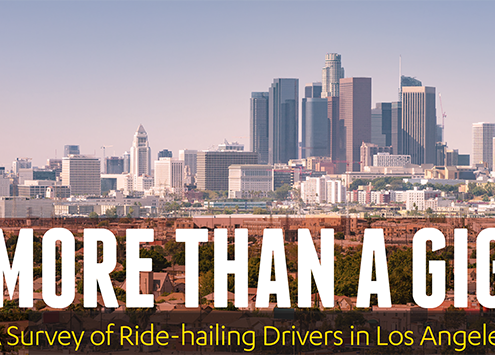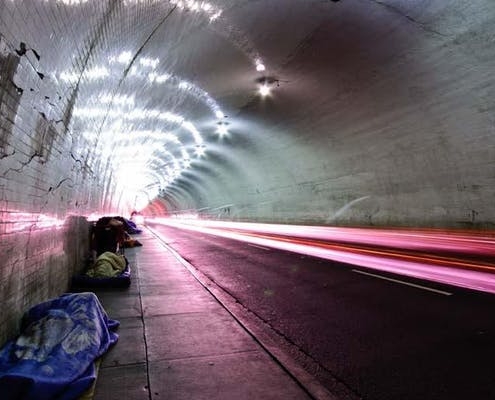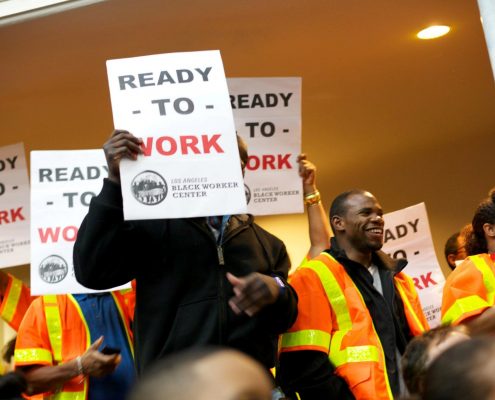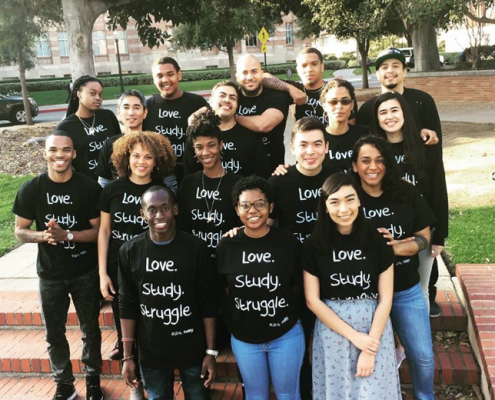Posts

More Than a Gig: A Survey of Ride-Hailing Drivers in Los Angeles
By Abel Valenzuela Jr. Professor and Director of the UCLA…

UCLA and Homelessness: See. Study. Solve. May 21-24, 2018
We call homelessness a crisis in Los Angeles because we…

Dr. Lytle Hernandez and Million Dollar Hoods to be Honored with Freedom Now Award on June 16
May 15, 2018 Professor Kelly Lytle Hernandez and Million Dollar…

Ready to Work, Uprooting Inequity: Black Workers in Los Angeles and California
By Lola Smallwood-Cuevas, Project Director & Saba Waheed,…

Mapping LA’s Million Dollar Hoods
By Kelly Lytle Hernandez Professor of History and African-American…

